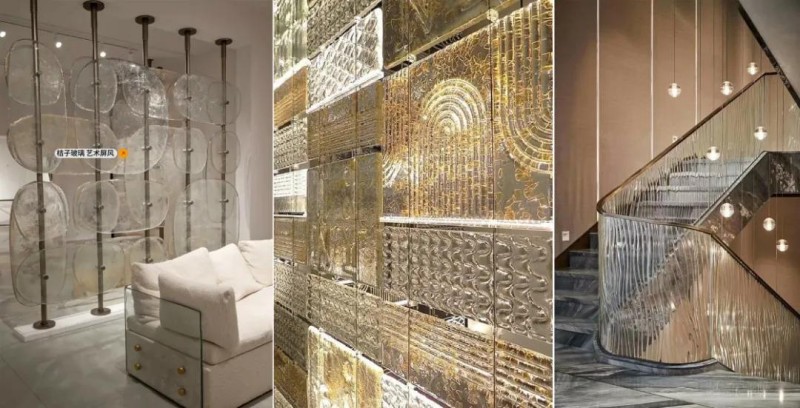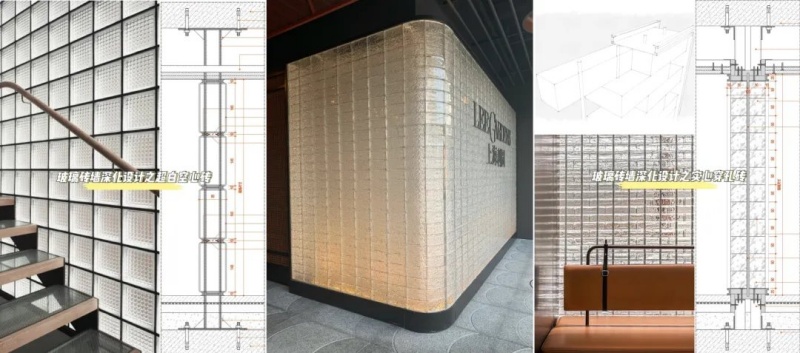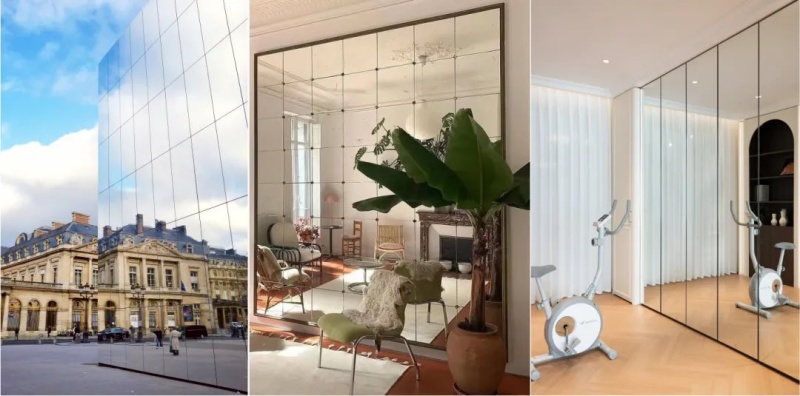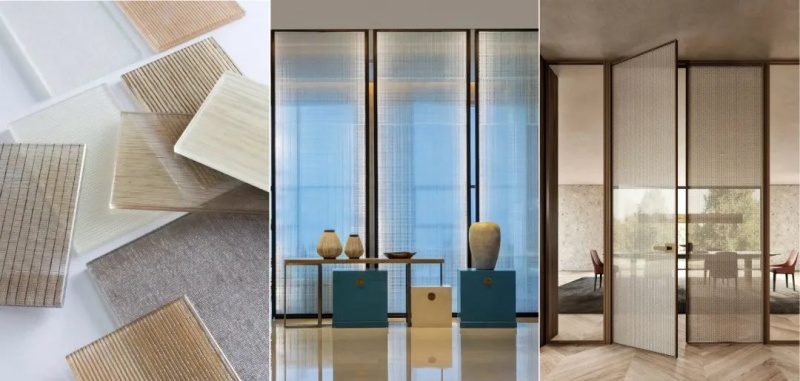
5.hot melt glass
1. Features and specifications
Flat glass is used as the substrate, heated to the softening point (about 700 °C) and then molded, supplemented by inorganic pigments to achieve a three-dimensional relief effect;
2. Analysis of advantages and disadvantages
Advantages: strong three-dimensional sense of pattern, excellent decoration (such as antique relief, abstract texture); Complex shapes (curved surfaces, hollows) can be customized, and the weather resistance is good (-30°C~150°C).
Disadvantages: high cost, large weight (thick plate ≥ 30kg/㎡) installation needs to be reinforced;
3. Fields of application
TV background wall, entrance screen, art partition; hotel lobby relief wall, exhibition hall art installation;

6. Glass bricks
1. Features and specifications
It is divided into two categories: solid and hollow, hollow bricks account for 90%, and the thickness of the internal airtight air layer is 80~100mm;
Standard bricks: 190× 190×80, 145× 145×80;
Large size bricks: 240×240×80, 300×300×100;
2. Analysis of advantages and disadvantages
Advantages: opaque light transmission (haze > 90%), excellent privacy; Energy-saving, thermal insulation, strong load-bearing;
Disadvantages: It cannot be cut, and it needs to be accurately typeset and designed; The cost of masonry is high (about 300 yuan/㎡ for labor + auxiliary materials).
Restricted wall height (4m after reinforcement ≤)
3. Fields of application
partition walls, dark bathroom lighting walls (such as shower areas), entrance screens, open kitchen partitions;
Exterior windows: replace traditional windows, resist wind pressure and heat insulation;

7. Mirror glass
1. Features and specifications
After polishing, the flat glass is silver-plated/aluminum-plated, which is divided into single-sided polishing (light transmittance 84%) and double-sided polishing; Thickness: 4~8mm (commonly used)
2. Analysis of advantages and disadvantages
Advantages: reflectivity > 90%, expanding the sense of space; Can be reprocessed; Compatible with safe handling (toughenable).
Disadvantages: easy oxidation of the plating, high installation requirements, ghosting problems (double-sided mirrors affect vision).
3. Fields of application
Mirror wall of dance room, fitting room of shopping mall, elevator car, wardrobe door, bathroom mirror cabinet (anti-fog treatment) art collage mirror;

8. Wire glass
1. Features and specifications
The surface can be embossed or polished, and the wire mesh can be customized with diamond-shaped, square and other patterns to enhance the aesthetic effect;
Thickness 4-10mm (commonly used)
2. Analysis of advantages and disadvantages
Advantages: Support the customization of colored glass substrate and wire pattern to meet the needs of modern design;
Disadvantages: The cutting edge metal wire is easy to oxidize and rust ("rust cracking" phenomenon), resulting in self-cracking of the glass, and it is necessary to apply anti-rust coating or edge banding;
Process limitations, production is prone to bubbles, rust spots, and the rate of high-quality products is low; Composite sandwich is required to improve safety;
3. Fields of application
Artistic partitions, stair railings, custom furniture (e.g. embossed glass coffee tables)
Commercial spaces (exhibition halls, hotel lobbies) translucent screens, combined with lighting to create an atmosphere;

Name: Litong Glass
Mobile:+86 16632961602
Tel:+86 16632961602
Email:vip@litongglass.com
Add:Shahe city,Hebei,China